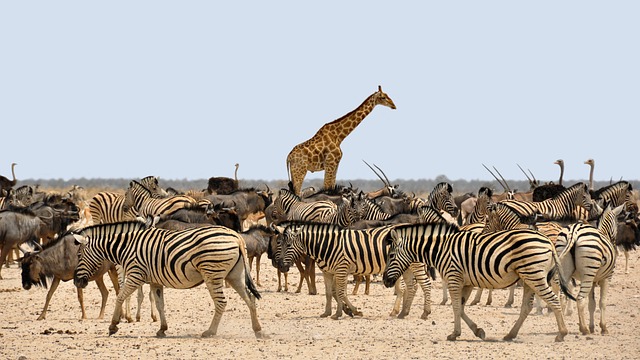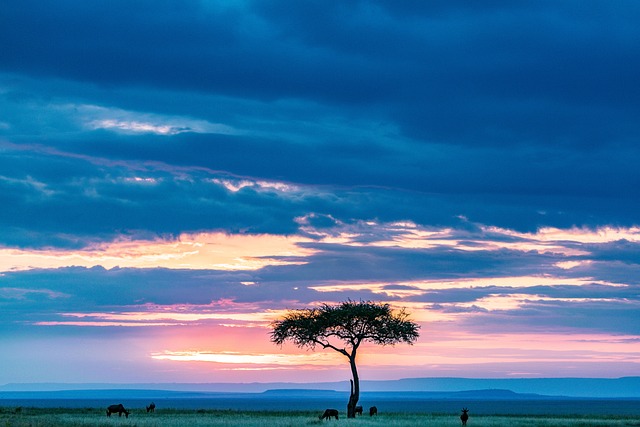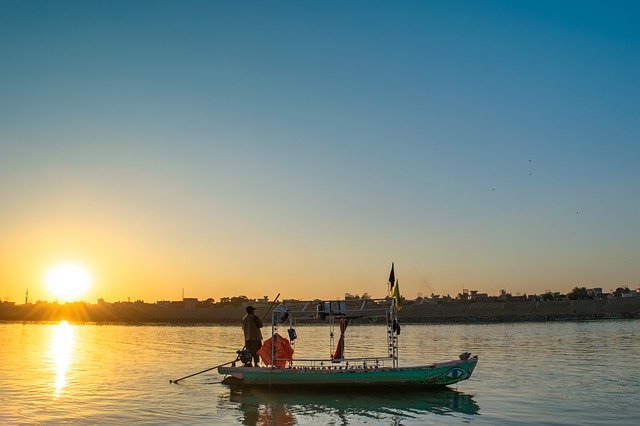The effects of climate change are felt worldwide, but they are particularly severe in Africa. Africa’s diversified ecosystems and weak populace make it particularly vulnerable to the impacts of climate change. This blog attempts to highlight the pressing need for action and raise awareness of Africa’s growing threat of climate change.
Rising Temperatures and Heatwaves
The average temperature in Africa is rising significantly, causing heat waves to occur more frequently and with greater intensity. Agriculture, water resources, and human health suffer considerably from increasing temperatures. Heat waves can harm plants, lower harvests, and raise the possibility of droughts. Furthermore, exposure to high heat can be dangerous to one’s health, especially for older people and other susceptible groups. Read: Heatwaves Are Killing Off Sea Life In Billions – Destroying The Ecosystem and What exactly is Global Boiling? – Causes, Effects, Solutions
Drought and Water Scarcity
In many areas of Africa, droughts are growing more frequent and prolonged, reducing water availability and decreasing agricultural production. Many regions rely significantly on rain-fed agriculture, which makes them especially susceptible to droughts. Lack of access to water impacts agricultural and livestock output because it makes it difficult for cattle to find enough grazing grounds. Additionally, when communities fight for scarce resources, water scarcity causes tensions and evictions. Read: Climate Change Is Increasing Water Scarcity Around The World
Flooding and Increased Precipitation
While some areas are experiencing a water shortage, others are seeing more significant precipitation and flooding more frequently. Rainfall patterns become more intense due to climate change, which causes soil erosion and flash floods. Flooding causes economic losses and community dislocation by destroying homes, infrastructure, and crops. Additionally, excessive rainfall puts the public’s health at risk by encouraging the spread of waterborne illnesses.
Threats to Biodiversity and Ecosystems
African habitats are diversified, their biodiversity is abundant, and their species are distinctive. However, these natural gems are seriously threatened by climate change. Ecosystems are disrupted by warming temperatures and shifting precipitation patterns, which causes habitat loss and extinction of species. Because of climate change, iconic species like lions, elephants, and rhinos are in danger. Additionally, biodiversity loss impacts local communities relying on these ecosystems for their livelihoods, such as tourism and sustainable resource use. Check out: Biodiversity Loss – Causes, Effects, and Solutions

Food Security and Agricultural Challenges
Many African economies rely heavily on agriculture, employing a sizeable section of the people. Climate change, however, jeopardizes agricultural output and food security. Farmers find it challenging to organize their efforts and produce reliable harvests due to erratic rainfall patterns, protracted droughts, and rising pest infestations. Subsistence farmers are especially susceptible to the effects of climate change because they lack access to modern resources and technologies. Food shortages, as a result, can worsen poverty and cause malnutrition. For more info: Climate Change Is Increasing Food Shortage Around The World
Health Risks and Disease Outbreaks
African communities are in danger of severe health problems due to climate change’s role in spreading illnesses. Malaria, dengue fever, and other vector-borne diseases are rising due to rising temperatures and increased rainfall, which favor disease vectors like mosquitoes. Climate change-related water scarcity and inadequate sanitation also raise the danger of waterborne infections. We must prioritize public health activities and strengthen healthcare systems to address these issues. Also read: Climate Change Threatens Survival of One Billion Children – UNICEF and Climate Change Impacts Human Health – Pandemics The Future?
Conclusion
Due to the climate catastrophe, Africa is experiencing a rising threat that impacts its people, ecosystems, and economies. At the local, national, and international levels, quick action is needed to reduce the effects of climate change and prepare for them. The main goals of the efforts should be an investment in sustainable agriculture, the promotion of renewable energy, the improvement of water management systems, and the implementation of methods to safeguard biodiversity and vulnerable populations. Addressing climate change in Africa can help ensure the continent and the Earth have a more resilient and sustainable future. Our shared duty is to take immediate action to protect Africa’s future generations.
You might also be interested in: These 11 Countries Risk Instability Due To Climate Change
This article was contributed by Chaudhary SanaUllah.
We hope you liked this post! Please comment below if you have any suggestions, comments or feedback! We at #envpk love hearing from readers! Thanks!




